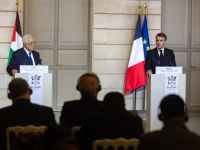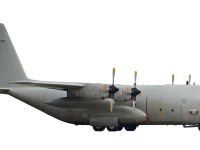The government's decision to scrap a partly built 5.6 billion US dollar nuclear plant has plunged Taiwan into political crisis, media and analysts said Sunday.
Premier Chang Chun-hsiung said Friday the government was canceling the nuclear power plant on safety and environmental grounds.
Local media termed as "a slap on the face of the KMT" the announcement, which came barely an hour after the chairman of the leading opposition Kuomintang (KMT), Lien Chan, advised President Chen Shui-bian not to decide on the project's fate without seeking a public consensus.
An angry Lien said "the president's credit has gone berserk ... It is regretful this is our national leader."
He claimed the party had been inundated by thousands of letters from supporters asking the KMT "to crack down on the origin of the chaos."
The KMT lost its 50-year grip on power in the March 18 presidential polls.
"The ruling party has spoiled its ties with the opposition parties by using rough and rude methods," said James Soong, chairman of the opposition People First Party (PFP).
Terminating the project "was a matter of conscience," the president said, dismissing the opposition allegations.
But analysts warned the volatile stock market could fall victim to the anticipated power struggle.
"The news will no doubt send the market crashing early in the week over concerns of an exodus of enterprises fearing a power shortage," said James Su, manager at Power World Securities.
There is concern scrapping the plant could worsen Taiwan's insufficient and unstable power supply, which has already prompted a number of local manufacturers to switch their production lines to China.
The weighted index of the Taiwan Stock Exchange managed to rebound by nearly 1,000 points in some two weeks after a plunge of 5,000 points due to political instability.
The government's decision may bring together the KMT and the PFP, whose core is composed of disgruntled former KMT cadres.
"The rude approach adopted by the ruling party has enabled the opposition parties to rally behind the same banner," the China Times said in its Sunday editorial.
PFP chairman Soong said: "The PFP would like to cast a vote of non-confidence against the cabinet. But since the PFP is a minority in the parliament, it would be impossible without the cooperation of the KMT."
The KMT controls 115 seats in the 221-seat parliament, the PFP has 17 seats, the right-wing New Party nine seats while the ruling Democratic Progressive Party (DPP) has only 68 seats. Independents have 12 seats.
Asked to comment on the remarks, the KMT's Lien said: "This would be correct ... (the two parties) should discuss and work hand in hand for the people's welfare."
The KMT is not expected to cast no-confidence vote in the parliament or impeach the president immediately.
"We would first push through a bill demanding the ruling party to restore the project," said KMT parliamentarian Chen Hsueh-sheng.
Premier Chang said calling off the project -- already 30 percent complete -- would cost the state-run Taiwan Power Company between 75.1 billion and 90.3 billion Taiwan dollars (2.3-2.8 billion US).
The project was pushed through in October 1996 by the then-ruling KMT government despite years of violent protests by villagers and environmentalists.
The DPP, which took power in presidential polls on March 18, had vowed to scrap the project -- TAIPEI (AFP)
3
© 2000 Al Bawaba (www.albawaba.com)







